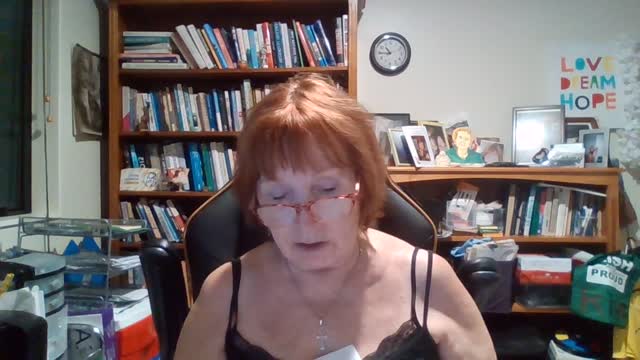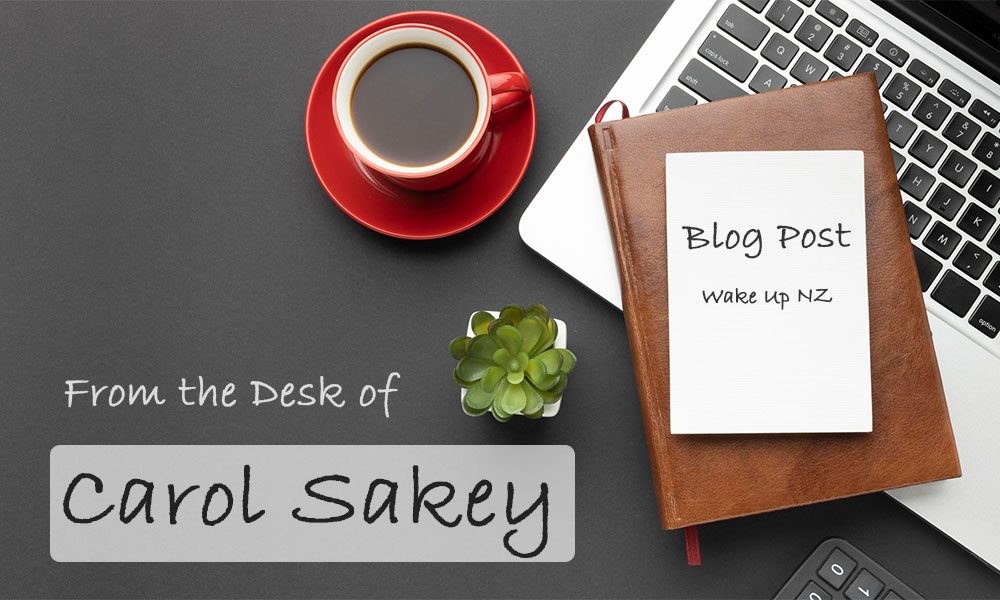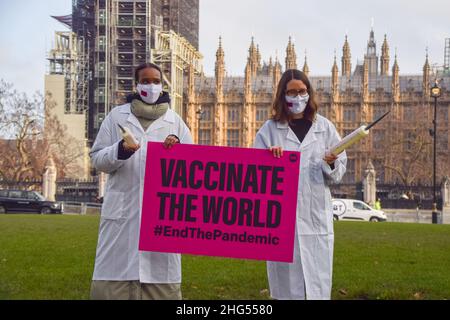Dear Prime Minister, Minister of Health, MedSAFE General Manager, Director General of Health, Police Commissioner, major party leaders, President of RNZCGP, Human Rights Commissioner, Ombudsman, Chief Coroner, Chairman of the MCNZ, Chairman of the DCNZ, all Members of Parliament.
Urgent Open Letter on the latest clear proof of multiple modes of harm from the COVID-19 injections.
Summary of published research from the last 3 months.
Since we last wrote to update you variously on the confirmation and mechanisms of widespread harm from the COVID-19 vaccine products, more research and disclosures have become public, each of which we summarize for you briefly in this letter. It is urgent that you act to cease the COVID-19 vaccine rollouts immediately.
In case you can read no further, an expert symposium has reported this week, based on published peer-reviewed research, that Comirnaty contains, along with heavy DNA contamination, a promoter code from a known cancer-causing virus called SV40. Urgent Expert Hearing on Reports of DNA Contamination in mRNA Vaccines. We have posted on the broader concerns and very troubling evidence on cancer particularly. Here is one world renowned oncologist describing the harm he sees, and another cancer specialist here.
Of concern, too, many patients have ongoing vaccine spike protein production in their blood after 6 months according to new research from Italy. So much for “all gone in a few days”.
Also, it is clear that the final product is NOT the version that Pfizer submitted to the world’s regulators for approval. Here is the BMJ paper of concern, and an interview with the author, who discusses the substantial changes in production processes, which does make them different products, by any usual standards of medicines regulation.
We note you remain in denial about, or resistant to, the notion of any harm from the jab program, which continues into vulnerable demographics – particularly young adults, children and unborn babies who are all at minimal risk, if any, from COVID-19 infection. There is clear evidence from around the world of mortality harm from the gene products, here for instance and rising proof that early treatments could save lives if doctors who tried to use them hadn’t been threatened and persecuted.
Our prior calls to your integrity, public duty, common sense and self-preservation have failed to stop both the continued hawking of dangerous genetic technologies onto our citizens, and the hiding of the resultant toll of deaths and severe injuries. Irrespective of any efficacy at all (only negative so far) these contaminated jabs contain a witch’s brew of known and unknown substances. There is enormous batch to batch variability with regard to incidence and types of adverse events as we have described previously. That they contain undisclosed ingredients ought to be enough to end this letter here, confident that action would follow. However, denial, wilfull blindness or lazy deference to “government experts” continue to writ large in Wellington.
Ongoing synthetic gene injections into a vulnerable population in the foreknowledge of inevitable deaths and injuries to come is surely a crime (even if protections may be promised to complicit individuals by people in power). The Crimes Act is highly explicit about what constitutes criminal behaviour.
Our multiple letters to you, and ongoing public posts here at NZDSOS, broaden the evidence available so that you cannot claim any statutory protection from having made fair and reasonable decisions on merely limited (government-sanctioned) information.
It is clear that protecting children and pregnant women and their babies, at least, is no longer an ethical bar of interest for some doctors, but we urge you, in the name of humanity, to consider the consequences of your actions here and now, and for future generations to come. Thank you for reading this far.
Risk vs Benefit:- The definitive proof that the risks of modified RNA injections exceed any benefits remains the 2022 paper by Fraiman, Greenland, Cohen, Doshi et al. The ratio is strongly negative. There was documented fraud in the Pfizer approval trial anyway, and more people died in the treatment group than the control group, particularly from heart attacks. If there was a deadly virus and the ‘vaccine’ worked, we would expect to see the opposite.
Negative efficacy:- Deceptive mis-categorisation of vaccine status continues to propagate the widespread untruth that the jabs reduce serious illness, hospitalisations and death. On the contrary, it is the multiple jabs that are bearing the burden of COVID-19 infection, as discussed by computational biologist Dr Jessica Rose.
The Cleveland Clinic study confirms the negative efficacy loud and clear. The “surprising finding” to the researchers was that the more jabs one had, the higher the chances of catching COVID-19 This will be the personal experience or observations of some of you, no doubt. The trial and commentary by an independent data analyst. We have sent you similar findings since the studies started emerging.
Contamination and failure of Good Manufacturing Practices (GMP)
We have written extensively on the Latypova and Watt disclosures that show the US rollout is owned and operated by the US military, as a prototype countermeasure against a manufactured viral bioweapon. It is unclear what legal pathways exist in New Zealand, however, to suspend GMP, human testing and give civilian agencies both liability protection and irrelevance, as is the situation in the US.
Evidence for high variability in batch toxicity and thus contamination is now absolute, as discussed here by cardiologist and COVID-19 early treatment expert, Dr Peter McCullough.
Bacterial plasmid DNA was expected in tiny amounts from the scaled-up production process, but McKernan et al found very high levels, detailed in the urgent hearing already discussed above. This may be the source of the reverse transcription into the human genome that we have informed you about. Plasmids are, by their nature, certain to integrate into host DNA, including into the microbiome, turning gut bacteria into a potential spike protein factory forever, along with human cells. The same research proved the presence of SV40 virus oncogenic (cancer-causing) genetic code in the synthetic RNA shots. We have posted on all this since May. This can be for no other purpose than to ensure integration into human DNA. This work has since been validated elsewhere.
By any account, not just that of oncologists, this should justify an investigation. Of course, the latest cancer statistics are unavailable but reports from health workers, patients and death notices give credence to an international cancer tragedy unfolding.
Heart damage: Serious cardiac adverse effects remain a major concern. A new Japanese study published in the top-tier journal Radiology shows that ALL vaccinated people have measurable cardiac stress following injection though they have no warning symptoms. The Swiss study we have discussed before is now published and peer-reviewed. This is also highly alarming and suggests too that almost everyone injected got a degree of heart damage. Actual symptomatic cardiac inflammation was seen in 1 in 35 (2.8%) of these 777 health workers in this study of the 3rd dose. (Swiss Study)
We have reported on similar studies before, eg the Thai teens study showing a 3.5% incidence of myo- or pericarditis in the boys. Yet here this has not justified stopping the rollout. These levels of harm from the jabs, in groups unaffected by severe covid anyway, are beyond any justification, as is your silence. It is simply a lie that covid would be worse than the jabs in these patients, nor is the jab myocarditis mild and self-limiting. Heart muscle cells cannot be replaced once they have died. For instance, 58% of post-jab myocarditis was still present at a year on MRI follow-up, as reported by a Hong Kong Study
We note that the NZ myocarditis study was supposed to be published early this year but now requests for updates on when it will be published are ignored. We continue to wait patiently for its findings. (There is a CDC study similarly being delayed). Far from being “vanishingly rare” the NZ researchers could select from over a thousand cases of post-vaccine cardiac inflammation supplied by MoH.
A recent Italian report documents late relapses in young subjects, with scar formation, which can lead to sudden fatal cardiac arrest, particularly in teens participating in sport, or during sleep. The medical reasons for this are no mystery. Meanwhile, multiple studies do NOT show the virus itself to cause significant myocarditis, as claimed by vaccine promoters. One is discussed by a cardiologist here.
Immune damage:-Repeated injections of the novel spike RNA are damaging immune responses, not just against the ability to clear COVID-19 and provide lasting actual immunity. Research shows multiple jabs cause IgG4 class switching and immune paralysis. This causes a tolerance situation, not just to repeated chronic infections but to cancer cells in the body that the immune system would otherwise destroy..
Computational biologist Dr Jessica Rose discusses IgG4-mediated immune tolerance, failure and fibrosis. Vaccinated children’s immune defense’s against all pathogens have been shown to be defective in a recent paper
Someone has to protect patients (and not from “disinfo doctors”)
Surely you can see the ongoing waves of PCR positivity and the new ‘variants’ escaping vaccine-induced antibodies, despite – our evidence has demonstrated because of – your claimed 92% vaccination rate? Our Department of Justice advised the government that the jabs had to prevent transmission to justify mandating, but was ignored.
We disagree that the mandates were ever justified at all. They are an offence to human decency and intelligence as well as medical ethics and NZ Bill Of Rights Act. Mandating experimental gene transfer technology for a flu-level illness was never justified, as we have told you repeatedly. The government’s own medical experts advised only one NON-MANDATED jab for children but were rebuffed by Dr Bloomfield, and that the jab would not protect people from infecting each other, as in this, one of many illuminating documents released under OIA requests.
Your lack of oversight (at best) has harmed the nation, causing death. There were 64,800 adverse event reports before CARM stopped formal reporting, over 11,000 of them serious (but 7000 of these ‘went missing’ in the MoH and weren’t recorded on the Medsafe website, per an OIA response). Hundreds of deaths were reported. The hospitals are overwhelmed, and full of excess vascular, cardiac and neurological cases, according to multiple accounts from staff and patients.
The Medical Council of New Zealand’s (MCNZ) action as political commissars enforcing obedience to anti-ethical dictates has silenced the medical profession’s traditional role as conscientious guardians, allowing an amoral landscape for commercial and political interests to run riot. MCNZ seems to be acting for the Federation of State Medical Boards, a private US pharma-funded corporation, not the NZ public. We have documented this extensively and continue to cry foul. We are in litigation to get this stopped.
The government has changed the Coroners Act which will aid and abet any cover-up and the ongoing silence on the many sudden and unexplained deaths, and tragedies all. No longer must a cause of death be discovered. A thousand-year-old common law principle has been shattered. Are we happy with this, as a society? Not only is death from “unascertained natural causes” deeply unsatisfactory, but it is also a lie in many of these cases. McCullough et al have just shown that properly performed autopsied reveal the jab as the universal cause in most sudden deaths following vaccination. We have written with serious concerns to coroners and pathologists about various suspicious cases, with near universal lack of response.
Rising death rates in vaccinated countries: Edward Dowd is a successful Wall Street data analyst. His recent book Cause Unknown quantifies the rise in death and disability that insurance companies are reporting amongst jabbed people with extensive references, and heart-rending photographs of many young lives lost already.
Rising all cause mortality is reflected in the hard data from government and insurance actuaries around the world e.g. the Euromomo report on elevated child deaths, as well as people in our small connected country dying suddenly.
Ongoing sudden deaths and disabilities continue amongst Kiwis, and many are young. At some point, these deaths will be properly examined and atoned for. The carpet is simply not large enough to conceal the growing pile of bodies being swept under it. In the meantime circumstantial proof that corrupted and coerced institutions, and the people in them, are complicit in mass harm continues to accrue:
- cessation of regular safety reports by Medsafe;
- inadequate post-death investigations;
- irregularities, conflicts and inconsistencies from bodies like CARM and ISMB;
- refusal or long delays in response from public guardians like the Police, Ombudsman, Health and Disability Commissioner and Human Rights Commissioner;
- dismayed funeral directors speaking out;
- refusal to provide ACC cover for obvious injuries;
- an obedient press that refuses to ask questions or cover the obvious harms and risks from the jabs;
- some brave medical specialists starting to admit that they were mistaken in putting all faith in the wait for a jab, any jab;
- and whistle-blowers from NZ’s health bureaucracy, St. Johns, midwifery, and community health.
All tell the same story of overwhelming sickness and unprecedented rates of all the same illnesses reported to Pfizer as soon as widespread administration of the jabs began – clots, embolisms, strokes, heart attacks and chest pain, neurological syndromes, autoimmune diseases, cancers and adverse pregnancy outcomes. The company tried to suppress them, but failed.
Ivermectin just won’t die: Meanwhile, the evidence for early treatments, particularly ivermectin, continues to strengthen. It is summarised here, and here at www.c19early.com, a comparator site of all the evidence for early and late treatments, pharmaceutical and natural. Peru is the latest real-world laboratory proving early treatments are successful, and many lives could have been saved here at home had Pfizer’s contract with the government not forced actual treatments underground. Some doctors were punished for following the highest level 1 evidence supporting ivermectin, a fully approved medicine, while at the same time, an experimental provisionally-approved injection was forced on people, including children and the pregnant. This is on top of the already severe consequences for those who tried to follow the Medicines Act, medical oaths and their consciences in questioning the jab.
Other mandates without informed consent:- Recent changes to the Medicines Act, and pronouncements by the vaccine industry and its partners at the WHO, have set the scene for endless genetically engineered injections to treat anything and everything. Medical regulators are now redefining themselves as facilitators for innovation rather than safety agencies. Is this the direction the public wishes to go, as the Therapeutic Products Act removes not just natural health products, but a wide range of practitioners and modalities that rely on them to help patients?
If any more confirmation were needed that actual health is of little interest to this government, we note the recent confirmation from the US government’s National Toxicology Program that water fluoridation does indeed harm developing brains, as if more research were needed. https://fluoridefree.org.nz The Ministry of Health has just revealed it has not assessed this significant development as it forces fluoridation on local communities by edict. MoH is facing an injunction from various local communities as we write. The overall meta-analysis results showed a 5 point average reduction in child IQ scores (similar to the harm from lead which got it removed finally from petrol). There is damage to all aspects of brain function, not just intelligence, which will undermine our social and intellectual capital. We urge the complete cessation of adding a known industrial toxicant to the water.
Is there a pattern here?: Most of the world no longer fluoridates but NZ ploughs on, in the same way is it continues to promote covid jabs for all, despite all evidence to the contrary, and as other developed countries scale back their recommendations. If these are not all crimes against humanity we would like an explanation why, and how the identified perpetrators will escape justice.
Some of them are trying to hide behind the WHO, which is making it’s orders compulsory rather than voluntary and removing any deference to human rights and freedoms, and can enforce its edicts on us even before any actual emergency, as part of merely ‘planning or preparing’ for one. We do not doubt future attempts to assault human freedoms on other very dishonest grounds, and note the government’s work potentially to undermine private property rights – the very definition of successful Marxism – under the guise of ‘modelling’ that predicts climate catastrophe for New Zealand’s coastal and low lying areas. We could have our real estate stolen with no recourse to the courts, and be ‘resettled’, no doubt forcibly, to a 15-minute city of the regime’s choosing.
Final appeal to protect the public: Thankfully, the truth will flourish at some point and the people will have their say. Perhaps they are already, with dramatically declining appetite for endless shots with zero clinical or even rational basis for them. However, you must stop these dangerous injections in view of this further evidence undermining ‘safe and effective’, especially of contamination and carcinogenicity risk. Despite being the eve of a general election, do not leave it to the next parliament to consider. We say that is already too late for many thousands of Kiwis.
Yours sincerely,
The 280+ doctors, dentists and other professionals at NZDSOS, the 50,600 Kiwis who have signed our declaration, and on behalf of everyone in our shared home.
Our posts at NZDSOS.com contain many more references to the above. Any links to commentary articles always link to the original reference.
NOTE VALUABLE LINKS TO THE ABOVE INFORMATION: https://nzdsos.com/2023/10/13/open-letter-to-officials-covid-19-injections/?fbclid=IwAR0AiTuFZjGcXYJ-ZVfpg70sYYilMPoR7JKMqF8cEpamcS2fb1Wd-A4VU98
...




